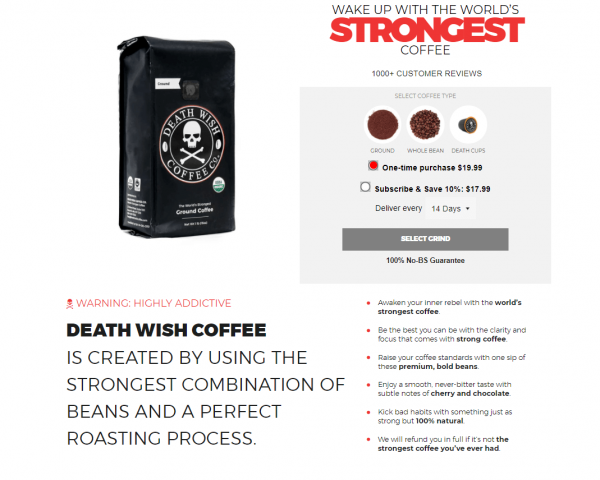Unique Selling Proposition (USP)
Contents
Definition
The unique selling proposition (also called “unique selling point”) is a trait of your product, business, or service that makes it unique and stand out from your competitors. Its purpose is to convince potential customers of what your business has to offer. A unique selling point should be articulated in a catchy way so that it stays in your customers’ minds and leads to recommendations. The term USP and the related theory have been known since 1940 and are still highly relevant for marketing.
Benefits for marketing
Your unique selling proposition has to be communicated in a clear and direct way in order to be effective. The goal is to stand out from your competitors and make customers understand that your product or service is special and of high quality.
The USP should be communicated before the actual purchase decision. This is usually done with the help of ads and slogans. “Melts in your mouth, not in your hand” used by M&M is an example of a good slogan highlighting their USP.
Another approach to communicating your unique selling proposition is the use of experts such as a known chef promoting kitchen utensils, for example. This alone can convince customers of your business and your product’s quality and make it look better than competing products. In economic theory, a USP is supposed to position your business in a unique way and eventually increase your revenue.
How to create a unique selling proposition
Unique selling points should be effective in the long term. This is why you should make sure it can not easily be copied by your competitors.
The second requirement for your USP is that it is centered around your target audience. You have to do market research to find out what potential customers consider important and what they might expect from your product or service. This way, you can make sure your unique selling proposition does not miss your target group’s needs and desires.
Another challenge in defining your USP is to keep an eye on costs. The profitability of your offer should not be compromised by your unique selling point. While this can be useful to improve the image of your business and increase brand awareness, it is only viable for limited editions and events. In the long run, unique selling propositions should not affect your profit margin.
Possible USPs
There are three main criteria that usually help a business to define a unique selling proposition:
Quality
A common USP lies in the quality of a product. You can prove that your offer is of high quality with the use of independent test results, for example. Another way to put emphasis on a product’s quality can be high market shares or the number of sold products. You can also benefit from positive reviews on marketplaces like Amazon or the App store, as customers see them as a quality indicator.

Screenshot of deathwishcoffee.com, using "the strongest coffee in the world" as unique selling proposition.
The example uses quality such as "strongest coffee in the world" and "premium beans" as a USP, while also highlighting their service in the form of full refunds.
Most products have at least one feature that shows their quality, e.g. materials such as stainless steel or platinum or features such as durability. Therefore, you should already consider which details can later be highlighted as a unique selling proposition during the product development phase.
Service
Customers expect not to be left alone with the product they have purchased. When they have to choose between several products, support and after-sales services can make the difference. There are many options for unique selling points in the service sector, for example, support in the customer’s language, 24/7 support, availability of spare parts, competence, friendly service, or personal advisors.
Price
Many customers regard price as a critical argument in their purchase decision. There are various possibilities to use this as a unique selling point for your offer. Best Price Guarantees, discounts, or one-time promotions are great ways to put emphasis on your USP in terms of price. This works the other way round, too. A higher price can stand for better quality, especially when combined with personal service.
Limits and challenges with regard to unique selling points
No matter how good a USP is, it can not compensate for an inferior offer. False promises lead to annoyed customers and can eventually cause a competing business to take legal action.
A second problem is that a successful unique selling proposition is often copied by competitors, be it price, special quality, or outstanding service. A USP that is used by more than one business is no longer unique. In order to avoid this and distinguish your business from the competition, you have to renew your USP regularly, at least in detail.
However, the major challenge remains in accurately identifying the USP of an offer and then translating it into a slogan that fits your business and target audience. But if used intelligently, the unique selling proposition is an irresistible sales argument for customers, which should already be considered when developing products or services.
Related links
- https://www.wordstream.com/blog/ws/2014/04/07/unique-selling-proposition
- https://www.convinceandconvert.com/digital-marketing/5-ways-to-develop-a-unique-selling-proposition/
Similar articles
| About the author |
 |